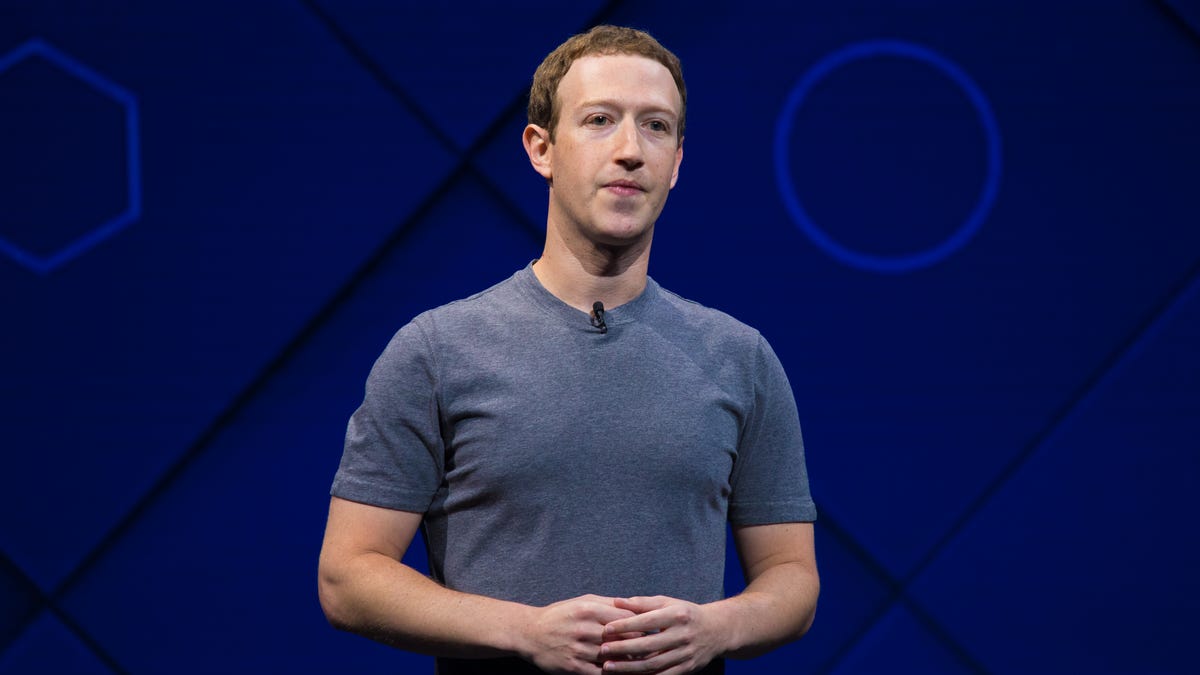Facebook’s latest privacy debacle points to larger problem: Trust
The social network is in hot water over a VPN security app it owns called Onavo reportedly spying on users. But Facebook’s issues are deeper than that.

CEO Mark Zuckerberg is fighting to repair Facebook's image.
To get to the heart of Facebook's newest controversy, you'd have to go back to 2013.
That's when Facebook announced it was buying Onavo, a mobile analytics startup based in Israel. At the time, the buyout was expected to bolster CEO Mark Zuckerberg's efforts to wire the globe, providing web access to underserved communities through the social network's Internet.org initiative.
"We ... hope to play a critical role in reaching one of Internet.org's most significant goals -- using data more efficiently, so that more people around the world can connect and share," Onavo co-founders Guy Rosen and Roi Tiger said at the time.
Five years later, Facebook's intentions are being called into question.
Onavo also provides users with a VPN, or virtual private network. A VPN helps you to stay secure online and keep your browser history from malicious websites and bad actors. Many corporations ask their employees to use VPNs when they are working remotely.
Earlier this week, TechCrunch reported that Facebook was using its main app to push users to download Onavo, by tapping on a banner labeled "Protect." (The "Protect" banner had actually been live for Android users since 2016, but had just "recently" gone live for iPhone users in the US, a Facebook spokeswoman confirmed.)
The issue: When you download Onavo, you give the app permission to share data about what you do on your phone with Facebook: "Because we're part of Facebook, we also use this info to improve Facebook products and services, gain insights into the products and services people value, and build better experiences," the description in Apple's App Store says.
That reportedly means Facebook can track your activity across apps, and it can use that data to spot new trends. If, say, lots of young people become infatuated with a cool new app, Facebook can decide how it wants to respond. It can also glean information about rivals like Snap. For example, Facebook knew Snapchat's user growth had been slowing, months before the company even announced it publicly, The Wall Street Journal reported in August.
The fallout points to Facebook's shrewdness in staying ahead of competitors. But the flare-up -- months after the controversy was first reported in August -- again paints a picture of a company on the ropes when it comes to trust. Facebook already has to fight back from the hit its reputation took after Russian trolls abused its platforms in an attempt to meddle in the 2016 election and sow discord among Americans. The clamor over Onavo illustrates just how fragile Facebook's image is right now.
When reached for comment, Facebook didn't directly address concerns about the company using the data to help its business. A spokeswoman didn't respond to a follow-up question about how the data is used.
"Like other VPNs, it acts as a secure connection to protect people from potentially harmful sites. The app may collect your mobile data traffic to help us recognize tactics that bad actors use," Erez Naveh, a product manager for Onavo, said in a statement. "Over time, this helps the tool work better for you and others. We let people know about this activity and other ways that Onavo uses and analyses data before they download it."
In response to all of those problems, Zuckerberg has been on a campaign to convince the public that Facebook is a good thing for its users and their well-being -- and more broadly, good for the world.
"Our focus in 2018 is making sure Facebook isn't just fun, but also good for people's well-being and for society," Zuckerberg said in a post in late January, outlining Facebook's goals for the year.
But when issues like this come up, it makes the goals harder to reach.
The Smartest Stuff: Innovators are thinking up new ways to make you, and the things around you, smarter.
Special Reports: CNET's in-depth features in one place.

